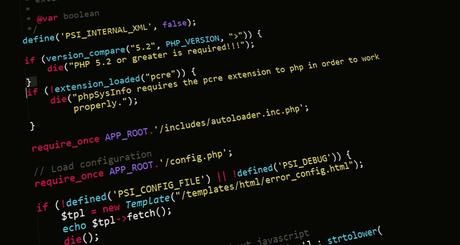In the ever-evolving landscape of digital education, Learning Management Systems (LMS) play a crucial role in facilitating efficient and effective online learning experiences. The development of LMS software requires careful consideration of various factors to ensure its functionality, usability, and scalability. In this article, we will discuss some of the important factors that need to be taken into account during the development of LMS software, highlighting the key considerations that can contribute to the success of the platform and ultimately enhance the learning outcomes for users.
Table of Contents
- 1. Overview of Learning Management System (LMS) Software
- 2. Key Factors to Consider During LMS Software Development
- 3. Importance of User Experience in LMS Software Development
- 4. Implementing Robust Security Measures in LMS Software
- 5. Integration of Multimedia and Interactivity Features in LMS Software
- 6. Future Trends and Challenges in LMS Software Development
- Q&A
1. Overview of Learning Management System (LMS) Software
Learning Management System (LMS) Software is a powerful tool that allows organizations to deliver, track, and manage various training programs and educational courses. It provides a centralized platform for instructors to create and deliver content, assess students’ progress, and communicate with learners. LMS software enables organizations to streamline their training processes, improve learning outcomes, and ensure compliance with industry standards.
Key features of LMS software include **course authoring**, **content management**, **student tracking**, **assessment tools**, and **communication tools**. LMS software can be deployed on-premise or through cloud-based solutions, offering flexibility and scalability for organizations of all sizes. With the increasing demand for remote learning solutions, LMS software has become essential for modern educational institutions, businesses, and government agencies looking to enhance their training programs.

2. Key Factors to Consider During LMS Software Development
When developing LMS software, it is essential to consider the following key factors to ensure the success and efficiency of the platform:
- User Interface (UI) Design: The interface of the LMS should be user-friendly, intuitive, and visually appealing. This will enhance user experience and engagement, leading to higher adoption rates.
- Scalability: The software should be designed to handle a large number of users and content efficiently. Scalability ensures that the system can grow as the user base increases without compromising performance.
- Security: Data security is a critical aspect of LMS software development. Implementing robust security measures such as encryption, authentication, and access control is crucial to protect sensitive information.
- Integration Capabilities: The LMS should be able to integrate seamlessly with other systems and technologies, such as HR software, content libraries, and virtual classroom tools. This integration enables a more cohesive and streamlined learning experience.
3. Importance of User Experience in LMS Software Development
User experience (UX) plays a crucial role in the development of Learning Management System (LMS) software. A positive user experience ensures that users can effectively navigate the platform, access content easily, and engage with the learning materials. This ultimately leads to better learning outcomes and increased user satisfaction.
When designing LMS software, developers must prioritize UX to create a seamless and intuitive interface. This includes implementing user-friendly features such as **responsive design**, **intuitive navigation menus**, and **clear instructions**. By focusing on UX, developers can enhance the overall usability of the software and provide a more enjoyable learning experience for users.
4. Implementing Robust Security Measures in LMS Software
When it comes to , there are several key factors to consider. One important aspect is ensuring that the software has strong encryption protocols in place to protect sensitive data. This includes implementing secure socket layer (SSL) technology to encrypt data transmitted between the server and user devices.
Additionally, it is crucial to regularly update the software with the latest security patches and updates to address any potential vulnerabilities. Conducting regular security audits and penetration testing can also help identify and address any weaknesses in the system. Implementing multi-factor authentication can add an extra layer of security by requiring users to verify their identity using multiple methods, such as passwords, biometrics, or security tokens.
5. Integration of Multimedia and Interactivity Features in LMS Software
When it comes to modern Learning Management Systems (LMS) software, the integration of multimedia and interactivity features is essential for creating engaging and interactive learning experiences for users. By incorporating multimedia elements such as videos, animations, and audio clips, instructors can enhance the visual and auditory learning experiences of their students. These features can help to keep learners engaged and motivated, leading to improved retention of course material.
Furthermore, the inclusion of interactive elements such as quizzes, polls, and discussion boards can facilitate active participation and collaboration among learners. This interactivity not only fosters a sense of community within the virtual classroom but also provides valuable feedback to instructors on the effectiveness of their teaching methods. Overall, the plays a crucial role in creating dynamic and engaging online learning environments.
6. Future Trends and Challenges in LMS Software Development
The future of LMS software development is shaping up to be driven by advancements in technology and changes in the learning landscape. Some key trends and challenges to watch out for include:
- Rise of Artificial Intelligence and Machine Learning in personalizing learning experiences
- Growing demand for mobile learning solutions
- Integration with other tools and platforms
With these trends come challenges such as:
- Ensuring data security and privacy
- Addressing the needs of diverse learners
- Staying compliant with changing regulations and standards
Q&A
Q: What are some key factors to consider in LMS software development?
A: Some important factors to consider in LMS software development include scalability, usability, security, customization, and integration capabilities.
Q: How does scalability play a role in LMS software development?
A: Scalability is crucial in LMS software development to ensure that the platform can handle an increasing number of users and content without sacrificing performance.
Q: Why is usability important in LMS software development?
A: Usability is important in LMS software development to ensure that users can easily navigate the platform, access content, and complete tasks efficiently.
Q: How does security play a role in LMS software development?
A: Security is critical in LMS software development to protect sensitive student and organizational data from cyber threats and ensure compliance with data privacy regulations.
Q: Why is customization important in LMS software development?
A: Customization is important in LMS software development to allow organizations to tailor the platform to their specific needs, branding, and teaching methodologies.
Q: How do integration capabilities impact LMS software development?
A: Integration capabilities are important in LMS software development to enable seamless integration with existing systems, tools, and technologies used within an organization’s ecosystem.
In conclusion, the development of LMS software is a complex and multifaceted process that requires careful consideration of a wide range of factors. By paying attention to key aspects such as user experience, scalability, security, and integration capabilities, developers can ensure that their LMS software meets the needs of both educators and learners alike. With the right approach and attention to detail, LMS software can be a powerful tool for facilitating effective online learning experiences. Stay tuned for more insights and updates on the latest trends in LMS software development. Thank you for reading.
The post Important Factors in LMS Software Development first appeared on dallaswebsite.design.
